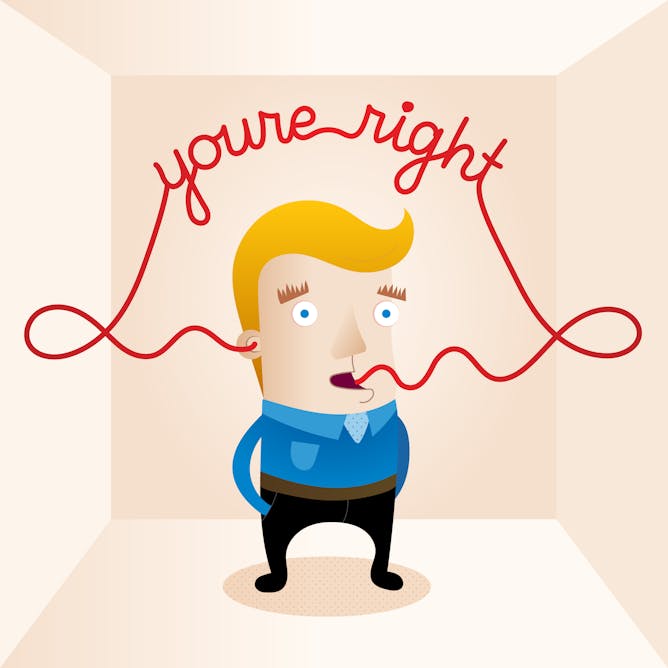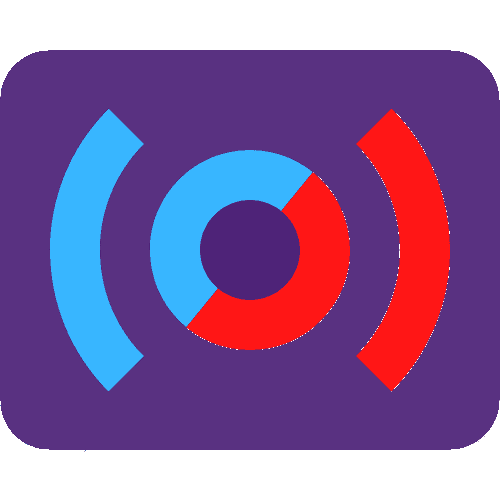Avoid these 3 types of echo chambers
John Grisham

Jul 15th 2021
There are three primary types of echo chambers — those influenced by social media, our physical surroundings, and our internal ones. The personal ways that we process and digest information.
Have you ever noticed the content you see on social media aligns with your beliefs? How often have you thought about the people with who you surround yourself? Did you notice that you think in eerily similar ways? Or maybe you became aware of resistance or defensiveness in yourself when questioned about what you think or believe?
This article will examine these three types of echo chambers and the dangers associated with each.
Note: In this article, I will be using the terms filter bubble and echo chamber interchangeably.
Social media echo chambers
This variety is one that most people may be familiar with when they hear the term echo chamber. As a result, it may receive more attention in conversation than the others. Examples could include, though are not limited to: chat rooms, the plethora of Reddit/sub-Reddit posts, recommended YouTube videos, Facebook groups, or how a Twitter feed is populated.
These examples have a common factor: they act in ways that reinforce the thoughts, feelings, or beliefs of those who engage with them. This reinforcement encourages activity, further encouraging engagement in the material that does resonate with readers/supporters. If we enjoy something or find that something has value to us, we come back to it for more, and this is further encouraged with the community of viewers.
These concepts form the basis for social media algorithms that recommend content for us based on the type of content already consumed. You might view some collector basketball shoes, and then Facebook realizes you like this specific variety of shoes. And so, more advertisements appear in your feed which you come to notice on some level - whether consciously or not.
Another example could be when you view and engage with information about a political party. Because of this, Facebook, YouTube, and others will attempt to show you content that aligns with beliefs shared by that group.
This type of filter bubble can be easier to recognize, and becoming familiar with this can help you be aware of bias. It does not mean you have to go nuclear and delete your profile. It can sometimes be enough to remain aware when entering an echo chamber. And then to gradually disengage or changing the patterns of how we use those platforms.
What can be most difficult is recognizing when the tactics of social media can be manipulative. The creators of The Social Dilemma expound on this in greater depth.
Physical echo chambers
What I am referring to here is our in-world interpersonal relationships. These encompass groups of friends and acquaintances - which could be in your community, our family, or friends. As a result of how close we are to these in-world relationships, filter bubbles can be harder to recognize in these groups.
Unlike social media, which can lead to news bias, our physical filter bubbles affect our daily lives in less consciously recognizable ways. When not engaging online, we absorb the ideas and thought patterns that we are exposed to by others.
One extreme but familiar example would be the high school clique. I think many readers here can conjure memories of high school, some of which may be fond, while others may not be. This group-based environment is likely to encourage sameness and familiarity.
So how does a clique result in an filter bubble? Because it is an isolation of a group. In other words, the members go from isolated individuals to isolated groups of individuals. Once a member joins the clique, they are reinforced with ideas and thought patterns shared by other members. It sounds an awful lot like an echo chamber, right?
And since cliques in nature are not inclusive or diverse, those thought patterns have no room for alternative views. For this reason, I'm a fan of diversity and not just diversity of race per se but a diversity of thought.
So how do you know if your interpersonal relationships form a clique like a filter bubble? Ask yourself how much you disagree with your group's thoughts and opinions. If the answer is not very much, then you probably need to expand your circles.
The echo chamber of one
The last type might seem like a stretch, but our minds also function as filter bubbles at times. You could say that this is the root type that is appealed to by the other two. I'm not a psychologist, so I can't speak to the nuances here. But I will speculate on a couple of ideas that I've had regarding this particular concept of the inner echo chamber.
You may have heard of feedback loops; they describe systems that use their output data as inputs. We see examples of these in nature and engineered systems like the thermostat. A thermostat is considered a negative feedback loop. As the temperature rises, the heat shuts off and cools the room, which eventually causes the heat to turn on again. This procedure allows for a regulation of the loop's output.
In contrast, positive feedback loops increase the output of a system, usually leading to exponential growth but can produce negative consequences if left unchecked. In this way, our exposure to positive self-affirming feedback loops can result in negative internal loops. If I have lost you by now, please let me explain.
Social media algorithms create infinite exposure to content meant to engage our attention. This exposure becomes the positive loop that reaffirms our news bias. As a result, our minds attempt to self-regulate this information by reducing our worldview. In short, we end up taking talking points we found online and churning them over subconsciously until they are easier to digest. This digestion is the base function of our thought process.
Our thought process alone isn't a bad thing. The problem is when the inputs we use to feed our internal loops are facts and opinions from only one side, we end up with a much narrower picture of the world than when we started.
The inner filter bubble is probably the trickiest type to escape because you will always be alone in your head. But you can use tools like self-introspection to become aware when trapped in an internal echo chamber.
Conclusion
In this article, I covered three categories of echo chambers that we can find ourselves in if we aren't careful. Social media can reaffirm our political bias. Social groups tend to give a false sense of correctness in assumptions because they can lack diversity. And our minds will allow us to fall into feedback loops that distort facts received from external sources.
Please let me know your thoughts on this article so that I don't find myself trapped in one after writing this, and thanks so much for reading!
Sign up for the free newsletter to get this and more curated stories that will help you escape your media echo chamber.
You might also like...